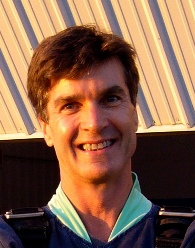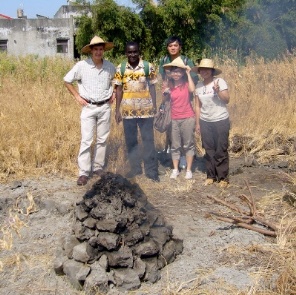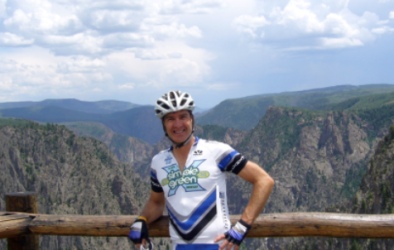


Molecular Environmental Soil Scientist
I focus on the binding of molecules in soils so we can better optimize plant utilization of plant nutrients and prevent soil contaminants from deteriorating human health and the environment.
Dean Hesterberg
Professor of Soil Chemistry
Dept. of Soil Science, NC State University
Academia
I consider myself a: Soil Scientist
My Highest Degree: Doctorate
I received my degrees from: B.S. Southern Illinois University – Carbondale M.S. Purdue University Ph.D. University of California-Riverside
I received my degree(s) in: B.S. Plant and Soil Science M.S. Agronomy Ph.D. Soil Chemistry
Length of Career: I have been a soil and environmental chemist for more than 20 years.
What was your career path to your current position?
After studying ecology, I discovered soil science and became interested in Soil Fertility. My advanced degrees made me more and more focused on the details of how chemicals transform in soils. These degrees gave me much versatility, and I worked for an oil company, then the ministry of agriculture in the Netherlands before coming to NC State University 19 years ago.
What projects are you working on now? What interesting projects have you worked on/led in the past?
We are using high-level analytical tools to help predict what will happen to heavy-metal contaminants released into the environment from the 2008 coal fly-ash spill in Kingston, Tennessee. Most of the 1.1 billion gallons of fly ash slurry released to the environment, including two rivers, following the breakage of a dike has been cleaned up. However, residual ash in the sediments can have long-term impacts on the aquatic ecosystems, and we hope to devise ways to lessen these impacts.
What do you find most interesting about your work (either currently or a story of a past experience)?
Every day is a new and different day, filled with learning exciting new things both in research and in teaching students. Soils are extremely complex, so there are many new discoveries to be made to keep up with the growing demands on soils for food production, energy production, and environmental protection.
What do you like best about your job and/or what do you like best about being in your profession?
The people in our field are wonderful. We all promote and celebrate each other’s successes with a healthy level of competition. Our field, although growing, maintains a feeling of community. Time flies because of all of the exciting challenges. There is rarely a day that I do not look forward to coming to work.
What’s the one thing you would change about your job/profession that would make it better?
If research funding for science, and particularly soil science, was greater, then many new (and perhaps high-risk, high-reward) ideas could be pursued.
What would you say to someone thinking about entering the profession? What advice would you give for succeeding in this field?
What advice would you give for succeeding in this field?
Soil and environmental chemistry is a wide-open field with many opportunities. Not only can you work in soil science, but the knowledge that you gain by working in this field allows you to work with scientists from many other fields. To become a soil chemist, you have to realize that learning is a one-way street. If at first you do not understand chemistry, just keep working on it. I continue to learn and apply basic principles of science in my work every day. The sky is the limit!
What do you like doing in your free time?
I love cycling. It gives me the chance to either be alone or to be with other people, outside, exercising while enjoying the scenery along quiet roads.
If you have more questions about my career, feel free to contact me at:
Dean Hesterberg
William Neal Reynolds Professor Emeritus of Soil Chemistry (Retired)
Dept. of Soil Science, NC State University
Cary, NC
919-523-6981
DHesterberg.Science@gmail.com


